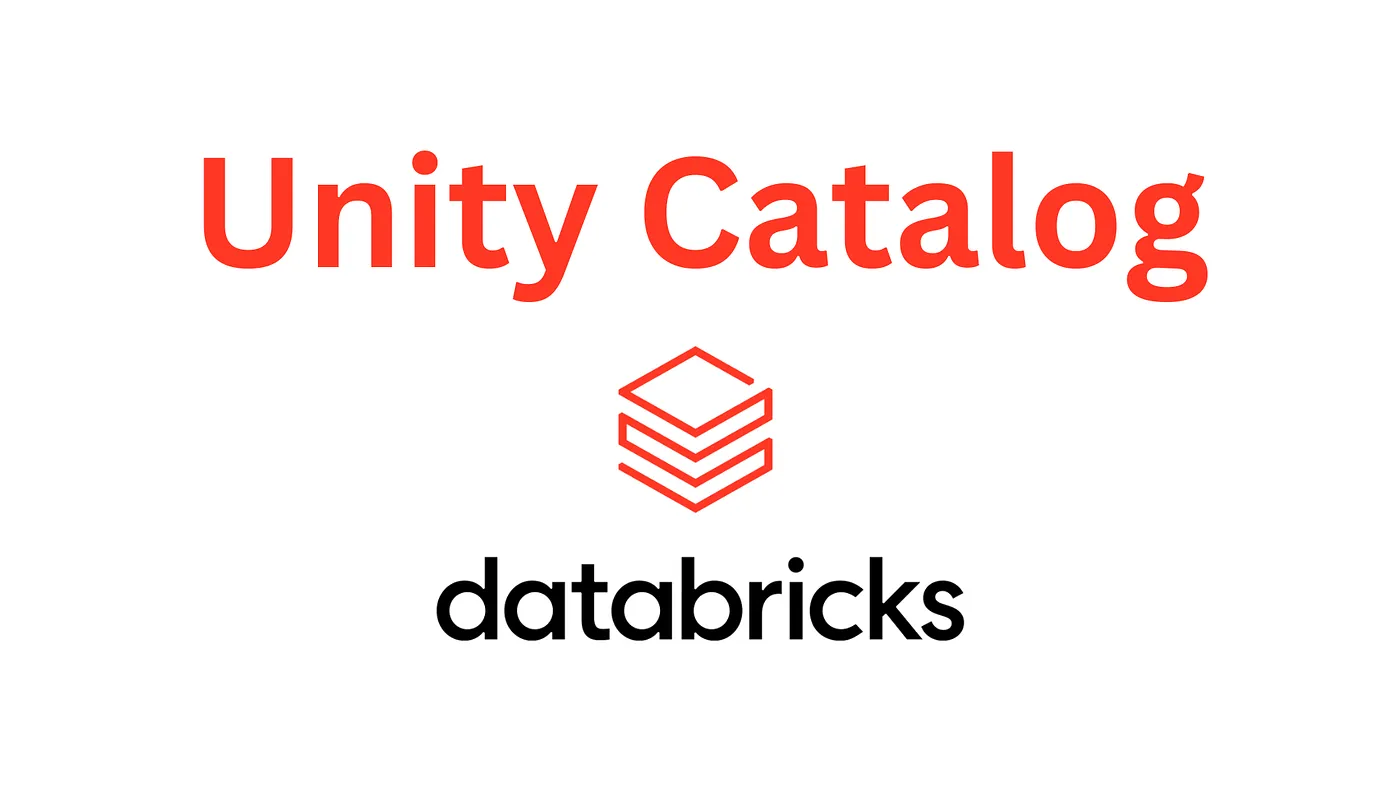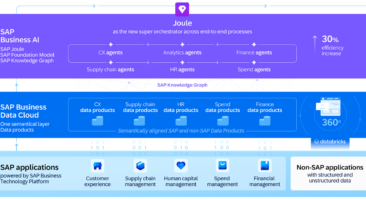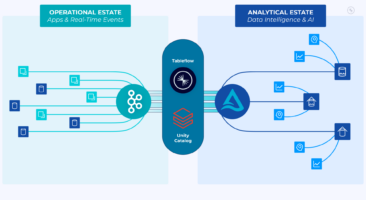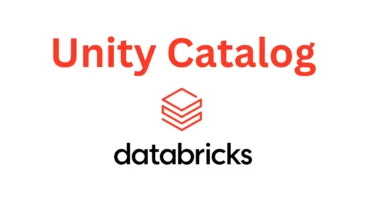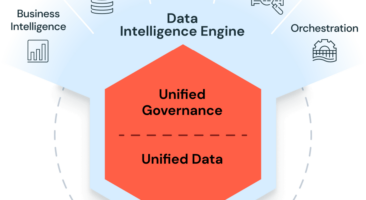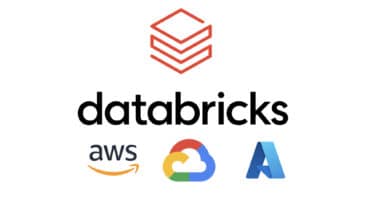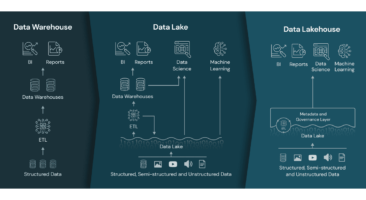Databricks Unity Catalog: Simplifying Data Management
In the current data-driven landscape, effective data management and governance are more critical than ever. Organizations are generating massive amounts of data, and the need to secure, manage, and extract value from this data has become paramount. Data is a key organizational asset, and a company’s performance and growth are significantly influenced by how well its data is managed in terms of quality, management, and ownership. With the expanding use cases for Generative AI, organizations today face growing data privacy concerns, necessitating the use of solutions like Databricks Unity Catalog for comprehensive data governance. Nevertheless, the reliance on data is increasing as organizations seek to optimize operations and drive informed business decisions. Consequently, there is a growing demand for robust data governance on data platforms to ensure consistent development and maintenance of both data assets and AI products in adherence to precise guidelines and standards.
Databricks Unity Catalog emerges as a powerful solution for enterprises aiming to unify and streamline their data governance. Let’s delve into why Unity Catalog is essential for achieving unified governance and how it can empower your data teams to work more efficiently.
What is Databricks Unity Catalog?
Databricks Unity Catalog is a comprehensive solution designed to streamline the management and governance of your data assets, regardless of where they reside. It acts as a centralized platform that unifies data discovery, access control, auditing, and lineage tracking, effectively breaking down the silos that often exist in data management across multiple cloud environments and platforms.
Whether your data is housed in Amazon Web Services (AWS), Microsoft Azure, Google Cloud Platform (GCP), or a combination of these and other environments, Unity Catalog provides a consistent and user-friendly interface. This unified approach simplifies the complexities of managing data spread across different clouds, making it easier for organizations to gain a holistic view of their data landscape.
Databricks Unity Catalog‘s primary goal is to deliver a centralized, easy-to-use solution for data governance, allowing organizations to focus on insights and innovation rather than navigating the complexities of fragmented data management systems.
Unified Governance: Key Benefits and Features
In today’s complex data landscape, organizations need effective governance to overcome challenges related to data fragmentation, privacy concerns, and compliance requirements. This section will cover the key benefits of unified governance, including centralized data management, simplified access control, enhanced security, and improved data quality. By leveraging these benefits, organizations can drive efficiency, foster collaboration, and build trust in data-driven insights.
Centralized Data Management
In a rapidly evolving digital environment, organizations deal with a massive surge in data volume, variety, and velocity. This data, often scattered across disparate systems, platforms, and departments, presents a formidable challenge: data fragmentation. Data fragmentation hinders organizations from harnessing the true potential of their data assets, leading to operational inefficiencies, security risks, and missed opportunities.
Databricks Unity Catalog emerges as a powerful solution to this pervasive problem. It offers a centralized data management platform that acts as a unified repository for all your data assets, irrespective of their original location. By consolidating data from diverse sources into a single, accessible location, Unity Catalog breaks down data silos and fosters a collaborative environment where data becomes a shared asset.
Key Benefits of Centralized Data Management with Unity Catalog:
- Enhanced Data Accessibility: Unity Catalog provides a single point of access to all your data, making it easier for authorized users to discover, explore, and utilize data for analysis, reporting, and decision-making.
- Improved Data Consistency and Quality: By eliminating data redundancy and promoting standardization, Databricks Unity Catalog ensures that everyone within the organization is working with the same accurate and up-to-date information**.** This reduces errors, enhances data integrity, and fosters trust in data-driven insights.
- Strengthened Data Security: Centralized data management enables organizations to implement robust security measures and access controls, protecting sensitive data from unauthorized access, breaches, and misuse.
- Streamlined Data Governance: Unity Catalog facilitates data governance by providing a clear framework for data ownership, lineage, and compliance. This ensures that data is managed responsibly and ethically, adhering to regulatory requirements and industry best practices.
- Increased Operational Efficiency: By eliminating the need to search for data across multiple systems, Databricks Unity Catalog saves time and resources, enabling data teams to focus on higher-value tasks such as analysis and insights generation.
By centralizing data management, organizations can overcome the challenges of data fragmentation, enhance data accessibility, ensure data quality, strengthen security, and streamline governance. With Unity Catalog, organizations can unlock the full potential of their data assets, driving innovation, informed decision-making, and competitive advantage.
Data Search and Discovery
Databricks Unity Catalog is a comprehensive data management solution that streamlines the process of discovering and accessing data assets within an organization. Its key features include unified data access, advanced search functionality, format-agnostic indexing, data lineage tracking, and collaboration capabilities. By providing a centralized metadata catalog and powerful search tools, Unity Catalog empowers data analysts, scientists, engineers, and business users to efficiently locate, understand, and utilize data, regardless of its location or format. Moreover, the data’s discoverability and visibility are tied to user permissions. This ultimately enables organizations to improve data governance, foster collaboration, and drive data-driven decision-making.
Key Features:
- Unified Search Experience: Unity Catalog provides a single, intuitive interface for searching across all your data assets, including structured and unstructured data, in both cloud and on-premises environments.
- Natural Language Processing (NLP): Unity Catalog leverages NLP to understand the intent behind user queries, enabling users to ask questions about their data in plain language.
- Faceted Search and Filtering: Users can refine their search results using various filters, such as data type, data owner, and data sensitivity.
- Data Previews and Metadata Insights: Unity Catalog provides data previews and metadata insights to help users quickly assess the relevance and quality of the data they’ve discovered.
Benefits:
- Accelerated Data Exploration: Unity Catalog empowers users to quickly find the data they need, reducing the time spent searching for and understanding data.
- Improved Collaboration: Unity Catalog facilitates collaboration among data teams and business users by providing a centralized platform for data discovery.
- Enhanced Data Governance: Unity Catalog’s data discovery capabilities help organizations identify and catalog sensitive data, ensuring compliance with data privacy regulations.
Simplified Access Control
Managing data access is a critical component of data governance, especially in industries with strict compliance requirements, such as healthcare, finance, and government. With the ever-growing volume and complexity of data, organizations need a robust and scalable solution to control who can access what data and under what circumstances. Databricks Unity Catalog addresses this challenge by providing a simplified yet powerful approach to access control.
Fine-Grained Access Controls
- Column-Level Permissions: Unity Catalog’s ability to define permissions at the column level is a significant advantage. This granularity ensures that sensitive data elements within a table can be protected while allowing access to less sensitive columns. For example, in a healthcare setting, a table containing patient information might have columns for personally identifiable information (PII), such as social security numbers. With Unity Catalog, access to these PII columns can be restricted to only authorized personnel. In contrast, other columns, such as diagnosis codes, can be made available to a broader group of users.
- Role-Based Access Control (RBAC): Unity Catalog supports RBAC, a widely adopted security model that simplifies access management by assigning permissions to roles rather than individual users. This makes it easier to manage access as users are added or removed from roles.
- Attribute-Based Access Control (ABAC): Unity Catalog can leverage ABAC to provide more dynamic and context-aware access control. This model allows for defining access policies based on attributes such as user roles, data sensitivity, and even environmental factors like location or time of day.
Benefits:
- Improved Security: By providing fine-grained access controls and supporting RBAC and ABAC, Unity Catalog helps organizations enhance their data security posture and reduce the risk of unauthorized access.
- Simplified Management: The centralized access control model in Unity Catalog streamlines the management of permissions across the data landscape. This reduces administrative overhead and simplifies compliance efforts.
- Enhanced Collaboration: While ensuring security, Unity Catalog also promotes collaboration by enabling authorized users to access the data they need to perform their jobs effectively. This empowers data engineers, analysts, and scientists to work together seamlessly without compromising data security.
In summary, Unity Catalog’s simplified access control capabilities, powered by fine-grained permissions, RBAC, and ABAC, provide a robust solution for managing data access in today’s complex data environments. By striking the right balance between security and accessibility, Unity Catalog empowers organizations to unlock the full value of their data while maintaining compliance and protecting sensitive information.
Data Lineage for Transparency
In the realm of data-driven decision-making, the significance of understanding your data’s journey cannot be overstated. To truly unlock the value within your data, it’s imperative to have a comprehensive grasp of its origins, the transformations it undergoes, and the various ways it’s being utilized across your organization. This is where the concept of data lineage comes into play, serving as a critical tool for achieving transparency and fostering trust in your data-driven insights.
Databricks Unity Catalog, with its robust data lineage capabilities, provides a comprehensive solution for tracking your data’s intricate pathways. It offers a detailed view of how data flows through your systems, from the initial point of ingestion through various stages of processing and transformation to its final use in analysis and reporting. This end-to-end visibility empowers you to answer critical questions about your data’s provenance and usage.
Key Benefits of Data Lineage:
- Regulatory Compliance: In an era of increasingly stringent data regulations, maintaining a clear and auditable record of data lineage is essential for demonstrating compliance. Data lineage enables you to track the movement of sensitive data, ensuring that it’s handled in accordance with applicable laws and industry standards.
- Data Governance: Effective data governance relies on a deep understanding of data assets. Data lineage provides a foundation for data governance initiatives by offering a clear picture of data ownership, responsibilities, and usage patterns.
- Data Quality and Trust: By tracing the origins of data and understanding its transformations, you can identify potential sources of error or bias. This helps to improve data quality and build trust in the insights derived from your data.
- Impact Analysis: When changes are made to data pipelines or systems, data lineage allows you to assess the potential downstream impact on reports, dashboards, and other data-driven applications. This proactive approach minimizes disruptions and ensures the continued accuracy of your insights.
- Collaboration and Knowledge Sharing: Data lineage facilitates collaboration between data teams, analysts, and business users. By providing a shared understanding of data flows and transformations, it promotes knowledge sharing and enables more effective communication around data-related issues.
Unity Catalog’s Data Lineage Capabilities:
- Automated Tracking: Unity Catalog automatically captures lineage information as data moves through your systems, eliminating the need for manual tracking and reducing the risk of errors.
- Visual Representation: The platform presents lineage information in an intuitive visual format, making it easy to understand complex data flows and relationships.
- Granular Detail: You can drill down into specific data elements to see their exact lineage, including the transformations applied and the systems involved.
- Integration: Unity Catalog integrates with a wide range of data processing and analytics tools, ensuring that lineage information is captured across your entire data ecosystem.
Data lineage, powered by Unity Catalog’s comprehensive capabilities, is a cornerstone of effective data management and governance. It provides the transparency needed to build trust in your data, ensure regulatory compliance, and unlock the full value of your data assets. By understanding the complete journey of your data, you can make informed decisions, drive innovation, and achieve your business goals with confidence.
Delta Sharing: Secure and Scalable Data Exchange
In today’s interconnected business landscape, organizations frequently need to exchange data with external entities such as customers, suppliers, and partners. This data sharing is essential for unlocking new business value and fostering collaboration. However, traditional data-sharing approaches have often been hindered by limitations related to scalability, infrastructure costs, and flexibility.
The Challenges of Traditional Data Sharing
- Scalability: Traditional methods often struggle to handle the large volumes of data that modern businesses need to share, leading to bottlenecks and delays.
- Infrastructure Costs: Setting up and maintaining the infrastructure required for data sharing can be expensive, especially for smaller organizations.
- Flexibility: Legacy systems can be rigid and inflexible, making it difficult to adapt to changing business needs or data formats.
Delta Sharing: A Modern Solution
Delta Sharing is a new approach to data sharing that addresses these challenges. It offers a secure, scalable, and flexible way for organizations to exchange data with their partners.
Key Benefits of Delta Sharing:
- Enhanced Security: Delta Sharing provides robust security features to ensure that data is shared only with authorized parties. This helps to build trust and protect sensitive information.
- Improved Scalability: Delta Sharing is designed to handle large volumes of data, making it suitable for even the most demanding data-sharing scenarios.
- Reduced Infrastructure Costs: By leveraging cloud-based infrastructure, Delta Sharing can help organizations reduce their IT costs.
- Increased Flexibility: Delta Sharing supports a wide range of data formats and can be easily integrated with existing systems.
Delta Sharing represents a significant advancement in data-sharing technology. By providing a secure, scalable, and flexible solution, Delta Sharing enables organizations to unlock the full potential of their data and drive business value through collaboration. As the demand for data sharing continues to grow, Delta Sharing is poised to become an essential tool for organizations of all sizes.
Enhanced Security and Compliance
In today’s digital landscape, organizations face mounting pressure to adhere to stringent data privacy and compliance requirements. Regulations such as the General Data Protection Regulation (GDPR), the Health Insurance Portability and Accountability Act (HIPAA), and the California Consumer Privacy Act (CCPA) mandate strict controls over the collection, storage, and use of personal data. Unity Catalog emerges as a valuable tool in helping organizations navigate this complex regulatory environment and achieve compliance.
- Audit Capabilities for Transparency and Accountability: Unity Catalog’s core strength lies in its robust audit capabilities. The platform maintains detailed logs that track data access and usage patterns. These logs provide a comprehensive record of who accessed specific data, what actions they performed, and when these interactions occurred. This level of transparency is essential for organizations to demonstrate compliance with regulatory requirements and instill a sense of accountability among data users.
- Meeting Industry Standards with Confidence: By leveraging Unity Catalog’s audit trails, organizations can confidently address the stringent requirements of industry-specific regulations. For instance, in healthcare settings, HIPAA mandates strict controls over patient health information. Unity Catalog’s audit logs enable healthcare providers to track access to sensitive patient data, ensuring that only authorized personnel can view or modify this information. Similarly, in industries handling consumer data, GDPR and CCPA compliance can be achieved by demonstrating a clear understanding of data access patterns and user activity through the platform’s audit capabilities.
- Beyond Compliance: Proactive Risk Management: While compliance is a critical driver, the benefits of Unity Catalog’s audit capabilities extend beyond meeting regulatory requirements. The detailed logs provide organizations with valuable insights into data usage patterns, enabling proactive risk management. By analyzing these logs, organizations can identify potential security threats, such as unauthorized access attempts or suspicious activity. This information empowers organizations to take preemptive measures to mitigate risks and protect their valuable data assets.
- Fostering a Culture of Data Responsibility: In addition to its technical capabilities, Unity Catalog promotes a culture of data responsibility within organizations. By providing transparency and accountability, the platform encourages users to be mindful of their data access and usage practices. This cultural shift towards responsible data stewardship is crucial for maintaining the trust of customers, partners, and stakeholders.
Unity Catalog’s enhanced security and compliance features, particularly its robust audit capabilities, play a pivotal role in helping organizations navigate the complex regulatory landscape. By providing transparency, accountability, and proactive risk management tools, Unity Catalog empowers organizations to meet industry standards, protect their valuable data assets, and foster a culture of responsible data stewardship.
The Impact on Data Teams
For data professionals – analysts, scientists, and engineers alike – Unity Catalog isn’t merely a new tool in the toolbox; it’s a seismic shift in the data management landscape. Databricks Unity Catalog directly addresses and resolves persistent challenges that have long plagued the industry, such as data silos, fragmentation, and accessibility issues. By doing so, it paves a clear path toward a streamlined, efficient, and ultimately more effective data-driven workflow.
- Breaking Down the Walls of Data Silos: Traditional data environments are often characterized by a fragmented structure where data is scattered across a multitude of systems, creating isolated “silos” that impede collaboration and hinder comprehensive analysis. Databricks Unity Catalog functions as a unifying platform, bridging these disparate data sources and providing a centralized, holistic view of the entire data landscape. This eliminates the need for data professionals to navigate a labyrinth of disconnected systems, saving valuable time and effort that can be redirected toward more strategic initiatives.
- Simplifying the Data Discovery and Access Journey: Without a unified platform, locating the right data for analysis can often resemble searching for a needle in a haystack. Unity Catalog’s intuitive search and discovery capabilities empower data professionals to quickly and efficiently pinpoint the precise data they require. Furthermore, its robust metadata management ensures that data is thoroughly documented, providing critical context and relevance that facilitates understanding and accelerates the entire analytics process.
- Fortifying Collaboration While Upholding Security: Data is undeniably a valuable asset, and its security is of paramount importance. Unity Catalog addresses this concern by offering robust security and governance features that ensure data is accessed only by authorized personnel. Simultaneously, it fosters a collaborative environment by enabling teams to seamlessly share data and insights within a secure framework. This delicate balance between security and collaboration cultivates a culture of informed, data-driven decision-making.
- Accelerating Onboarding and Boosting Productivity: Navigating a complex and fragmented data landscape can be daunting and time-consuming for new team members. Unity Catalog streamlines onboarding by providing a centralized access point and clear, comprehensive documentation. This empowers new members to quickly ramp up and become productive contributors, significantly reducing the learning curve and accelerating project timelines.
- Shifting Focus from Routine Tasks to High-Value Activities: By automating routine data management tasks and presenting a user-friendly interface, Unity Catalog liberates data professionals from mundane and repetitive activities. Instead of grappling with data access and integration issues, they can dedicate their expertise to more strategic and impactful pursuits such as building sophisticated models, developing actionable insights, and driving innovation. This strategic shift in focus yields greater productivity and ultimately translates into enhanced business value.
Summary
Databricks Unity Catalog transcends its role as a mere data catalog; it serves as a catalyst for profound change in the way data professionals approach their work. By dismantling data silos, simplifying access, fostering collaboration, and upholding security, it empowers data teams to unlock the full potential of their data assets. With Unity Catalog as a cornerstone, organizations can cultivate a thriving data-driven culture where insights are readily available, collaboration is seamless, and innovation flourishes. It heralds a new era of data empowerment, where data professionals are equipped with the tools and capabilities to extract maximum value from their data and drive their organizations forward.
In a competitive landscape, leveraging data efficiently and responsibly can mean the difference between success and stagnation. Databricks Unity Catalog provides the unified governance necessary to turn your organization’s data into a strategic advantage. By simplifying access control, enhancing security, and providing comprehensive data lineage, Unity Catalog makes data governance a foundational part of your data strategy—empowering your teams to innovate with confidence.
Ready to bring unified governance to your data? Reach out to us at LoadSys to learn how we can help you implement and maximize the value of Databricks Unity Catalog. Let’s make data governance seamless, secure, and powerful for your organization.








